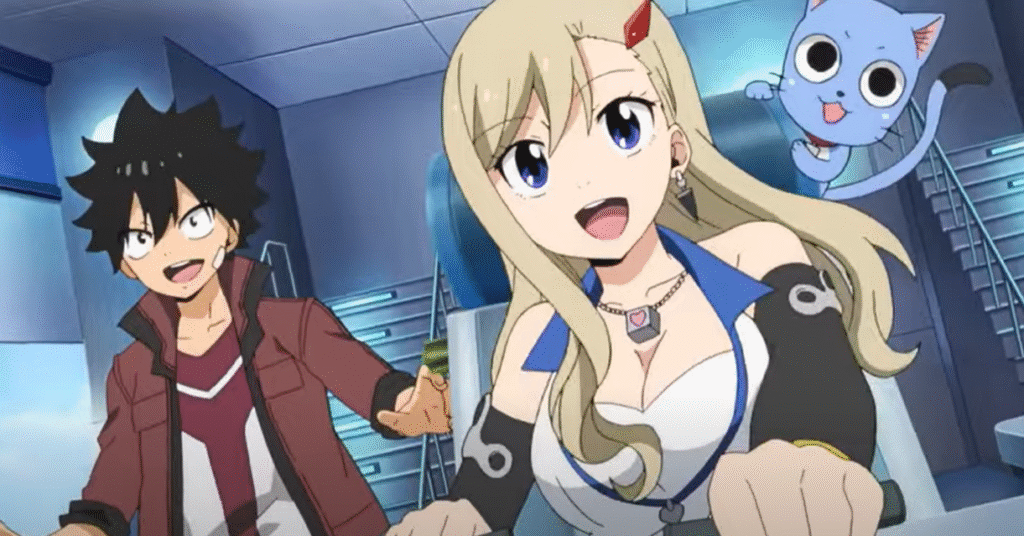
What is Lord of the Mysteries?
Well, if you haven’t watched the video I made earlier on it, here’s a quick rundown: Lord of the Mysteries is a dark, steampunk fantasy that’s brilliantly crafted—blending elements you don’t usually see in an isekai.
You’ve got a base setting inspired by the Victorian era, layered with secret mystical societies, a protagonist who stumbles into this hidden world, and a dangerous supernatural hierarchy that defines its power structure. Add in some cosmic horror for that creeping dread and existential threat, and you’ve got something truly unique.
To really go deeper than we did before, though, let’s start again—with Klein.
Klein is the person our protagonist reincarnates into… immediately after the original Klein shoots himself in the face.
We don’t know how or why the main character ends up as Klein, but what he quickly learns is that this new world is nothing like the one he came from. The industrial-age, Victorian backdrop already sets it apart, but beyond that lies a reality full of secret organizations, ancient churches, and Eldritch-like deities.
Klein may be the one driving the narrative, but it’s the surrounding religious, political, and mystical conflicts that give this world its incredible depth.
What really sets Lord of the Mysteries apart, though, is its meticulously built magic system—one of the best I’ve seen in fantasy, period.
Klein becomes naturally entangled in a supernatural framework known as the Beyonder Pathways.
There are 22 distinct routes of power—each with unique abilities, philosophies, and lurking dangers that threaten madness.
Picture these paths as ladders. Each one has nine steps, and each step you climb brings you closer to godhood. These steps are called sequences, and every Beyonder begins at Sequence 9—the weakest tier. From there, they ascend, aiming for Sequence 1, where powers border on the divine.
But here’s the catch: these powers aren’t gained by training harder or learning new spells. They come from dangerous rituals.
To move up a sequence, a Beyonder must consume a specially tailored potion that aligns with their pathway.
If they successfully digest it, they ascend and gain new abilities.
If they fail? Madness. Death. Or worse—mutations and horrific transformations.
Success isn’t just about physical strength or magical affinity—it depends on how well a Beyonder can align themselves with the core identity demanded by their pathway.
It’s not enough to be on a path. You have to embody it.
At first, it might start as a simple compulsion—a new instinct. But the higher you climb, the more your identity is shaped and twisted by the pathway’s nature.
Eventually, the influence becomes overwhelming. You risk losing yourself entirely.
That’s why Beyonders use what’s called the acting method—a psychological technique where, instead of becoming the archetype their path demands, they pretend to be it.
It’s a way of maintaining a mental barrier between who they are and who the pathway wants them to be.
Without this method, the urges and instincts take over.
For example, take someone on the Hunter Pathway. As the name suggests, this path demands the user embrace a predatory mindset—stalking, tracking, and chasing prey.
They might gain heightened senses, improved reflexes, trap mastery, or similar abilities.
But the danger lies in the psychological shift. They could start seeing the world only in terms of predator vs. prey.
Soon, they become bloodthirsty, obsessed with competition.
Without the acting method, that person will be consumed by the Hunter identity.
So how does a Beyonder avoid this? By understanding the path they’re on and acting in a way that satisfies the conditions—without becoming the role.
A Hunter might take up bounty hunting jobs, chasing criminals in a way that channels their instincts, but on their own terms.
It’s strategic. Controlled. But if they start hunting just for fun? That’s when they know the path is starting to control them.
Each path has an archetype. Every sequence has behavioral expectations.
It’s an enormous system—comprehensive, diverse, and unlike anything else in the genre.
And that doesn’t even touch on Klein’s own unique power. I’ll leave that for when you check out the series yourself.
Just remember: in Lord of the Mysteries, powers don’t just affect what a character can do. They shape who that character is.
Madness isn’t just a risk—it’s a constant, creeping threat that intensifies with every step forward.
The story starts off grounded—with some classic detective work—but quickly expands into something far greater.
We’re talking gods, world-spanning conspiracies, and ancient truths buried in layers of mystery.
Klein gets more and more entangled in all of it, facing not just external threats, but an internal struggle to maintain his identity.
It’s a delicate balance—always teetering between control and collapse.
And that’s what makes Lord of the Mysteries stand out.
It’s not just about power—it’s about risk. About the cost of chasing that power.
Every step forward is a gamble.
Every ritual could be your downfall.
And every advancement brings you closer to the horrifying truth behind everything.
So, why do I think Lord of the Mysteries might become the best anime of the year?
Aside from its deep magic system, brilliant genre blending, and complex world-building, the marketing alone shows it has incredible animation.
The first two episodes have already premiered in China, and the praise has been glowing—especially for the cinematic visuals and top-tier VFX.
If the rest of the show looks anything like the trailers, animation quality won’t be a concern.
The studio’s director even said he’s using this project to prove that 2D animation still has power—and from that alone, you know the passion is real.
I’m not worried about the story either. The only concern? Pacing.
This is often a weak spot in Donghua (Chinese animation), and early reviews suggest Lord of the Mysteries may face the same issue.
It might feel fast—maybe too fast—especially since there’s so much information packed into every 30-minute episode.
But the good news is that the original author, Cuttlefish, is involved in the production.
That means the adaptation is being overseen by someone who understands exactly what matters.
So yeah, the pacing might be jarring at first—but if done well, it’ll still immerse you like the best anime out there.
In short?
Amazing story
Massive fanbase
Global distribution
Stellar animation
Author supervision
Multiple seasons in the works
Backed by Tencent
There’s no reason this can’t become one of the biggest anime releases of the year.
If it pops off, it could raise the bar for all anime going forward.
So, if you’re into isekai, deep power systems, psychological storytelling, or just high-quality shows in general—go check out episode 1.
Even if you only watch anime for the sakuga, there’s gonna be plenty of it here.

